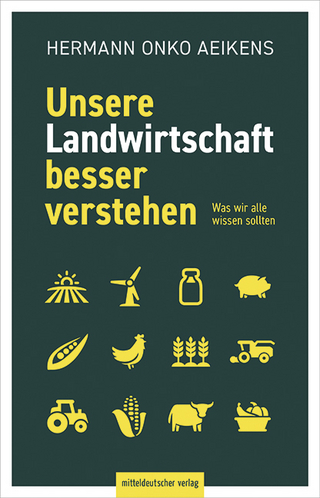
Fundamental and Practical Aspects of Tribology
CRC Press (Verlag)
978-1-032-50225-0 (ISBN)
Fundamental and Practical Aspects of Tribology introduces the rudiments of engineering surfaces and teaches the basic phenomena of interacting surfaces in relative motion, major modes of friction and wear, and theories of contact evolution and lubrication. Fundamental topics include friction, wear, and lubrication; surface properties and surface topography; friction of surfaces in contact; wear and surface failures; biotribology; boundary lubrication; fluid properties; hydrodynamic lubrication; bearing selection; and introductory micro‑ and nanotribology. This book also considers the relationship between nano‑ and macrotribology, rolling contacts, tribological problems in magnetic recording and electrical contacts, and monitoring and diagnosis of friction and wear.
Offers a comprehensive review of the fundamentals, providing basic information for scientists and engineers just being introduced to the tribology field
Teaches tribological methods of measurements and characterization
Includes examples of real‑life tribological problems and case studies of engineering problems and solutions
Gives an overview of current advancements in the field
Features end‑of‑chapter problems, solutions to exercises, and accompanying video content for reinforcement of material
This textbook is written for students taking courses in tribology and lubrication, as well as surface engineering. It will also appeal to scientists and engineers who are new to tribology.
The text also offers sample laboratory demonstrations available to qualifying adopting professors.
Diana Berman is an Associate Professor of Materials Science and Engineering at the University of North Texas. Her research focuses on synthesis and characterization of nanostructures, surfaces, and interfaces of ceramic and carbon‑based materials for precise control and improvement of their tribological properties and functionality. She has published more than 80 papers in peer‑reviewed journals and holds over 10 patents (both US and international). Among her awards are TechConnect Innovation Awards, Society of Tribologists and Lubrication Engineers Early Career Award, UNT Early Career Professorship Award, UNT Research and Creativity Award, NSF Early Career Award, and Fulbright Scholarship Award. She also serves on the editorial boards for Nature Scientific Reports and Tribology Letters journals. Andreas Rosenkranz is a Professor of Materials-Oriented Tribology and New 2D Materials in the Department of Chemical Engineering, Biotechnology, and Materials at the University of Chile. His research focuses on the characterization, chemical functionalization, and application of new 2D materials. His main field of research is related to tribology (friction, wear, and energy efficiency), but he has also expanded his fields toward water purification, catalysis, and biological properties. He has published more than 160 peer‑reviewed journal publications, is a fellow of the Alexander von Humboldt Foundation, and acts as a scientific editor for different well‑reputed scientific journals, including Applied Nanoscience and Frontiers of Chemistry. Max Marian is a Professor of Multiscale Engineering Mechanics at the Department of Mechanical and Metallurgical Engineering of Pontificia Universidad Católica de Chile and Deputy Director of the Institute for Machine Design and Tribology (IMKT) of Leibnitz University Hannover, Germany. His research focuses on energy efficiency and sustainability through tribology, with an emphasis on the modification of surfaces through micro‑texturing and coatings. Besides machine elements and engine components, he expanded his research toward biotribology and artificial joints. His work is particularly related to the development of numerical multiscale tribo‑simulation and machine learning approaches. He has published more than 50 peer‑reviewed publications in reputed journals, given numerous conferences and invited talks, and been awarded various individual distinctions as well as the best paper and presentation awards. Furthermore, he was listed among the Emerging Leaders of Surface Topography: Metrology and Properties, is on the editorial boards of several recognized journals, and is a member of the Society of Tribologists and Lubrication Engineers (STLE) and the German Society for Tribology (GfT).
1. Fundamentals of Tribology. 2. Tribological Testing Theory. 3. Liquid Lubrication. 4. Surface Engineering. 5. Applied Tribology: Case Studies. 6. Beyond Traditional Tribology.
| Erscheinungsdatum | 10.07.2024 |
|---|---|
| Zusatzinfo | 11 Tables, black and white; 138 Line drawings, black and white; 41 Halftones, black and white; 179 Illustrations, black and white |
| Verlagsort | London |
| Sprache | englisch |
| Maße | 156 x 234 mm |
| Gewicht | 740 g |
| Themenwelt | Naturwissenschaften ► Biologie |
| Technik ► Maschinenbau | |
| Technik ► Umwelttechnik / Biotechnologie | |
| ISBN-10 | 1-032-50225-8 / 1032502258 |
| ISBN-13 | 978-1-032-50225-0 / 9781032502250 |
| Zustand | Neuware |
| Haben Sie eine Frage zum Produkt? |
aus dem Bereich


